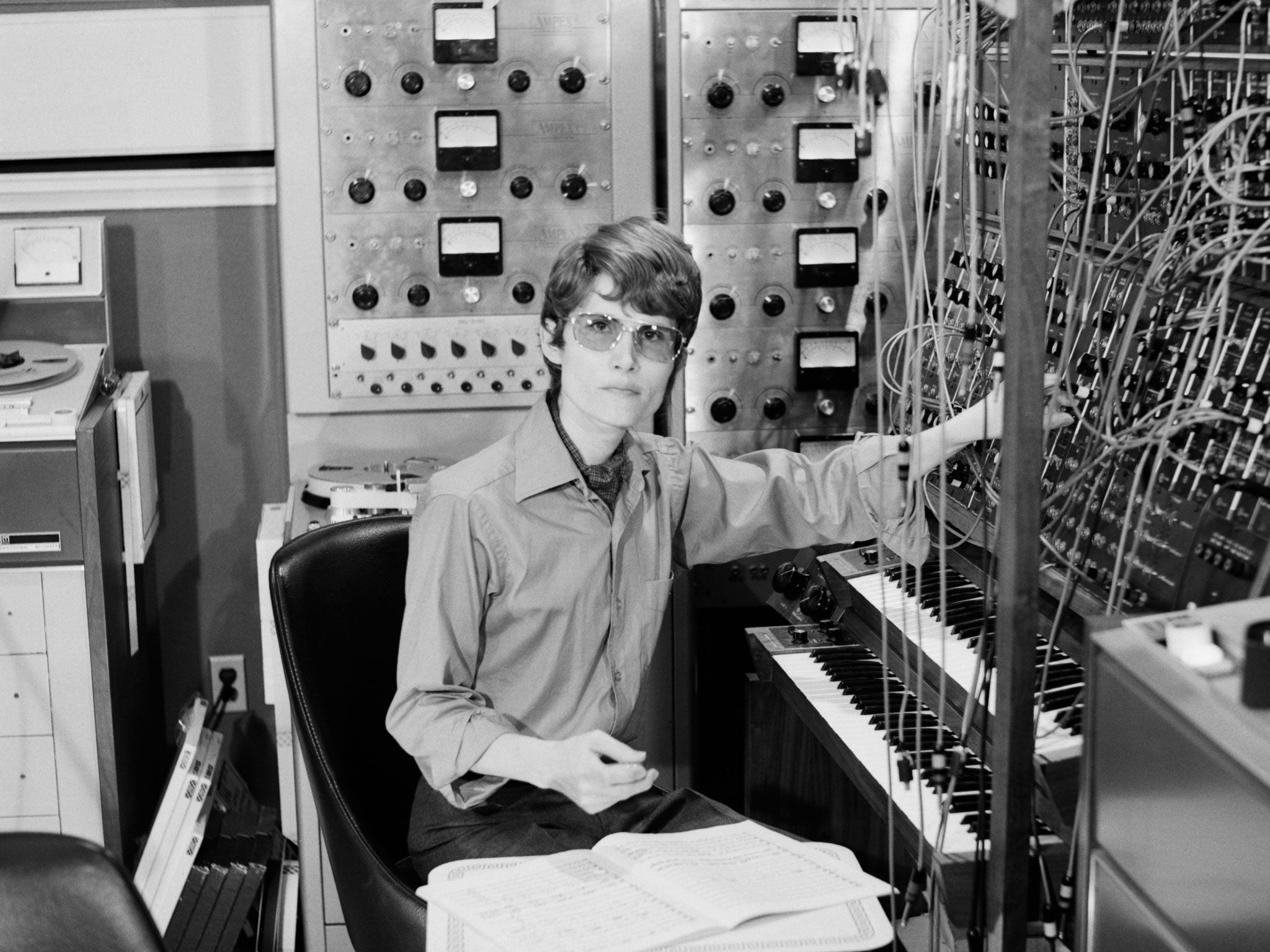Wendy Carlos's mind houses a glorious fusion of art and science
Chris Maume on the transgender musical pioneer, 76 today

Your support helps us to tell the story
From reproductive rights to climate change to Big Tech, The Independent is on the ground when the story is developing. Whether it's investigating the financials of Elon Musk's pro-Trump PAC or producing our latest documentary, 'The A Word', which shines a light on the American women fighting for reproductive rights, we know how important it is to parse out the facts from the messaging.
At such a critical moment in US history, we need reporters on the ground. Your donation allows us to keep sending journalists to speak to both sides of the story.
The Independent is trusted by Americans across the entire political spectrum. And unlike many other quality news outlets, we choose not to lock Americans out of our reporting and analysis with paywalls. We believe quality journalism should be available to everyone, paid for by those who can afford it.
Your support makes all the difference.It must be galling for one of the most visionary musicians of the second half of the 20th century to be equally well-known for an aspect of her private life she'd prefer to keep private. But in some minds Wendy Carlos will always be "the former Walter Carlos".
Classical music had never known anything like it when Carlos released Switched-On Bach in 1968. Its transcriptions for the Moog synthesiser caught the ear of maverick pianist and music writer, Glenn Gould, who declared: "Carlos's realisation of the 'Fourth Brandenburg Concerto' is, to put it bluntly, the finest performance of any of the Brandenburgs... I've ever heard." Record producer Giorgio Moroder, for one, said the album inspired him to pick up a synth.
Switched-On Bach went platinum, won three Grammys and led to Carlos's groundbreaking work on the soundtrack to A Clockwork Orange, her renderings of Purcell and Beethoven a perfect counterpoint to the dystopian menace and violence. She was to work with Stanley Kubrick again on The Shining, her adaptation of Berlioz's "Symphonie fantastique" gracing the opening scene.
Carlos's mind houses a glorious fusion of art and science. She was born as Walter in Pawtucket, Rhode Island, in 1939, learning the piano from the age of six and composing her first piece of music when she was 10. She was scientifically precocious, winning an award at 14 for building a computer – new territory indeed in the early 1950s. She recorded Switched-On Bach on equipment she built herself, later working with Robert Moog, helping him to refine and improve his machines.
By that time she was living as a woman, and the money from Switched-On Bach funded her surgery. She has been mostly unforthcoming about her transition. There's a section on her website in which she deals with the issue, "angry and weary that more than just a few creepy asses cannot or will not get past a few events in my personal history of long ago". For music lovers, though, Wendy Carlos is a true pioneer, and the rest is irrelevant – which is just how she'd like it.
Join our commenting forum
Join thought-provoking conversations, follow other Independent readers and see their replies
0Comments